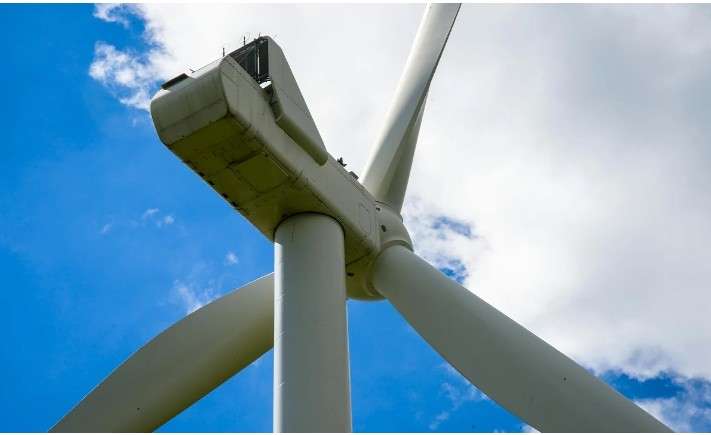Egypt’s clean-tech ecosystem is gaining global attention as the country harnesses its natural solar and wind advantages to power major renewable energy projects like the Benban Solar Park and expansive wind farms.
Startups are emerging in green hydrogen, EV infrastructure, recycling, and smart water systems, offering innovative solutions to climate and energy challenges in a region facing acute environmental stress.
Yet, despite this momentum, systemic challenges persist, including limited access to testing labs, unclear regulatory frameworks, and overdependence on imported technology.
As government bodies begin forming committees to support clean-tech innovation and international investors increasingly eye the sector, Egypt’s full transition into a clean-tech leader hinges on synchronized policy reform, local manufacturing, academic-industry collaboration, and global partnerships.
This model, experts hope can set a new standard for climate innovation across Africa and the Middle East.
What’s the Opportunity and the Problem in Egypt’s Clean-Tech Ecosystem?
Egypt’s clean-tech sector holds vast promise due to its rich solar and wind resources, positioning it as a potential leader in Africa’s green energy shift.
As the report notes,
“Egypt is uniquely positioned with natural advantages in solar and wind that many developed markets would envy.”
Yet, startups face hurdles like limited R&D support, regulatory uncertainty, and heavy reliance on imports.
“While Egypt has the sun and wind, it lacks the industrial backbone and regulatory clarity to scale its innovations,”
The article warns, highlighting the urgent need for systemic reform to unlock the ecosystem’s full potential.
How is the Government Responding
The Egyptian government has begun taking steps to support its clean-tech sector, notably through the establishment of a Ministerial Committee on Entrepreneurship aimed at easing regulatory barriers and encouraging innovation.
However, experts say more robust action is needed. As climate-tech advocate Mohamed Attia noted,
“We need more than committees, we need a clear, actionable framework that supports local manufacturing, protects intellectual property, and enables access to the national grid.”
Without defined energy policies, carbon credit systems, or a green hydrogen roadmap, the current approach risks stalling the country’s clean-tech momentum.
Investment and Global Competition
Egypt remains a key player in Africa’s clean-tech race, but faces mounting global pressure as funding drops and competition rises. Despite a 32% increase in average deal size to $2.5 million, total climate-tech investment in Africa declined in 2024. As the report warns,
“India and Malaysia are not waiting, they’re building local value chains. Egypt can’t afford to be left behind.”
To stay competitive, Egypt must reduce its reliance on imported technology and invest in local manufacturing and innovation.
Green Hydrogen and Emerging Sectors
Egypt is positioning green hydrogen as a key pillar of its clean-tech future, aiming to produce 5 million tons annually by 2040, backed by global partnerships.
This opens new ground for startups in electrolyzer tech, AI-driven plant management, and byproduct reuse. Other fast-growing sectors include solar desalination, smart irrigation, waste-to-energy, and EV infrastructure, vital for a climate-vulnerable nation.
As the article notes,
“If Egypt leverages its renewable potential and scales innovation around hydrogen production, it could become a clean energy powerhouse,” but doing so will require “innovation labs and co-developed pilot zones to turn vision into results.”
What Work Elsewhere and What Egypt Needs
Egypt’s clean-tech future hinges on replicating global best practices where innovation meets real-world application.
Countries like India and the UK have succeeded by providing “shared R&D labs, regulatory sandboxes, and grid access” for startups to scale quickly.
The article notes:
“Egypt has yet to build the full innovation support cycle,”
With many ventures stalling due to lack of infrastructure and pilot opportunities. To catch up, experts stress the need for,
“a national framework that backs clean-tech innovation with both regulatory certainty and real-world access.”
Talking Point
Egypt’s clean-tech sector holds immense promise, driven by abundant solar and wind resources and flagship projects like the Benban Solar Park, yet it faces structural hurdles that threaten its momentum.
Unlike peers such as Morocco, Kenya, and South Africa, who have advanced through clearer policies, local manufacturing, and robust R&D support, Egypt still struggles with regulatory uncertainty, limited innovation infrastructure, and heavy reliance on imports.
While government efforts like the formation of a Ministerial Committee signal intent, experts warn that without enforceable frameworks, domestic value chains, and pilot-ready innovation zones, Egypt risks falling behind in the global green race.
As one analyst notes, “Egypt has the sun and wind, but not yet the backbone to scale its innovations,” highlighting the urgent need for a coordinated national clean-tech strategy to translate its natural advantages into sustainable leadership.




